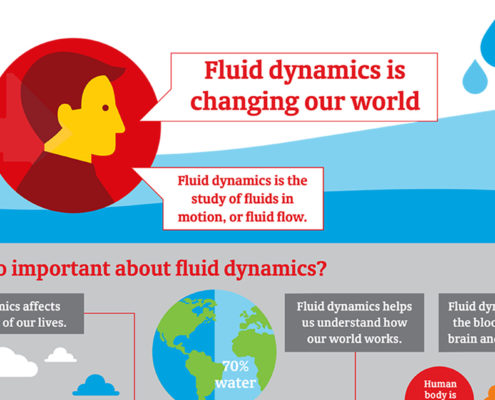Fluid dynamics plays a key part in understanding the Gulf Stream. Because of differences in temperature and salinity, in some places water is denser (and therefore heavier) than in others. In parts of the North Atlantic, large quantities of dense surface water plunge into deep sea basins, triggering the Gulf Stream.
Large-scale melting of glaciers would reduce local salinity levels and could upset this process, slowing down the Gulf Stream or pushing it much further south. However, oceanic systems are complex and nobody knows for sure how realistic or far-reaching these effects would be.
A better understanding of turbulence would help to clear up the picture. At two Max Planck Institutes, in Göttingen (Germany) and Twente (The Netherlands), researchers are closely examining the
 https://cpp.canon/app/uploads/2018/05/Infographic-Fluid-Dynamics.jpg
1080
1920
Michel van der Wal
Michel van der Wal2018-07-23 10:40:582019-02-18 13:31:53Infographic: fluid dynamics is changing our world
https://cpp.canon/app/uploads/2018/05/Infographic-Fluid-Dynamics.jpg
1080
1920
Michel van der Wal
Michel van der Wal2018-07-23 10:40:582019-02-18 13:31:53Infographic: fluid dynamics is changing our world









